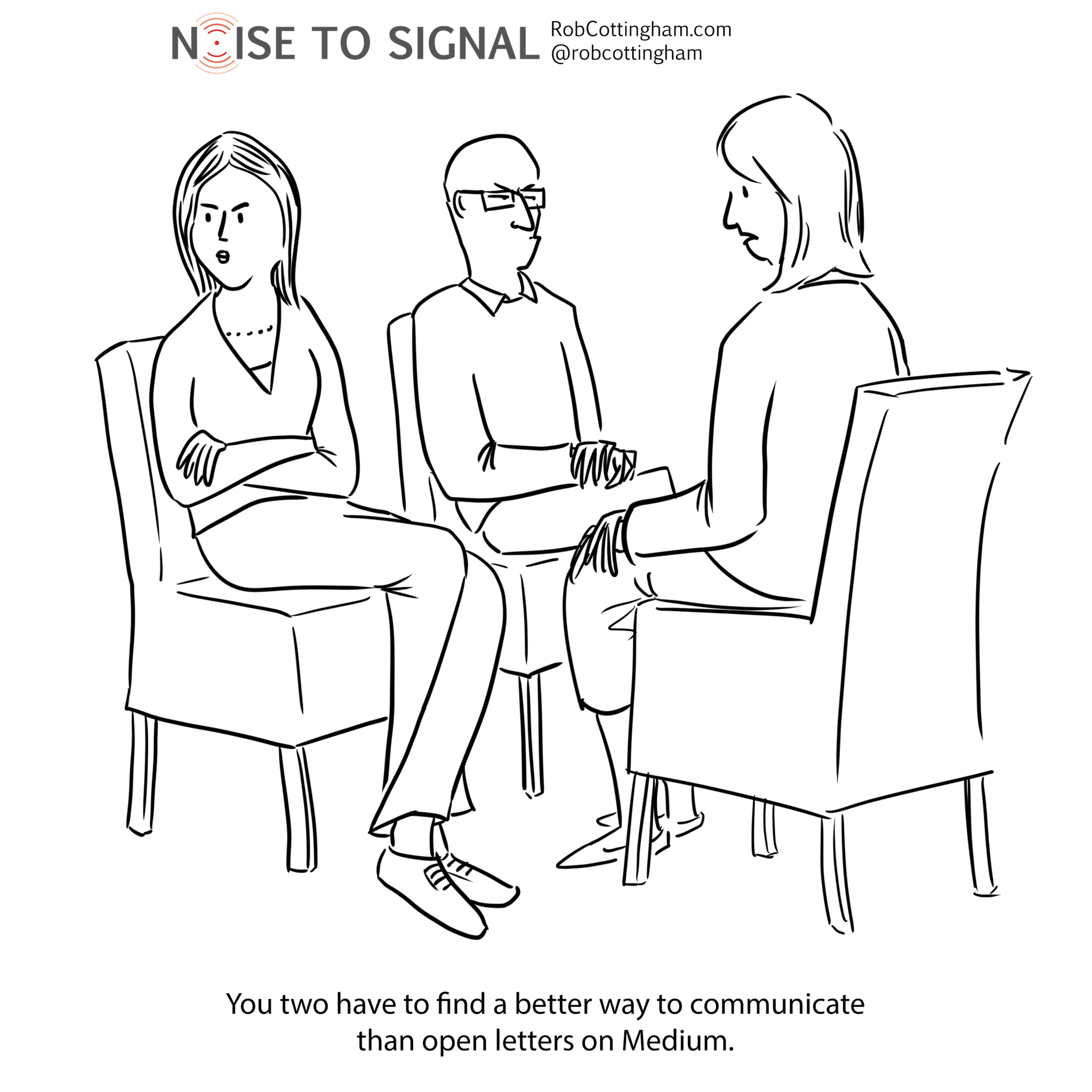I’m in no position to dump on people for posting open letters. I posted a kind of manifesto (the open letter’s cousin who never acknowledges it at family reunions) yesterday to my blog. (If you’re interested, it’s The Presentation Audience’s Bill of Rights.)
But there sure seem to be a lot of open letters out there, and Medium is the place to post them. Open letters to Twitter, to millennials, to CEOs, to mayors, to fans, even just to people looking for love.
And on their heels—because everything online phenomenon has to spawn its own immediate metashadow—are open letters about open letters.
Many of these letters say a lot more about the people who write them than about the addressees, in ways the writers probably didn’t expect—hello, Tech Bro! Sometimes the brilliant rant that seemed so clever when you pushed “Publish” at 2:30 am suddenly reads as horrifically mean-spirited at 9:00 am over coffee.
Anyway, if you’re writing an open letter trashing someone or some class of people, and you don’t want to be the next mascot for coldhearted pettiness, here’s my advice:
- If you’re replying to another open letter, read it. Really read it. Too many open reply writers seem to be strip-mining their source material for vulnerabilities, and ignoring the context around them.
- Put yourself in the position of the people you’re addressing. (And that doesn’t mean replying in a snide, high-pitched voice while rolling your eyes.) Dig deep for your most compassionate self, and try to make their case as best you can. Now reread your letter, and rewrite it.
- Make it clear to whom you’re addressing it. And don’t address an open letter to a lazy stereotype, like “millennials”, and then go railing against their sense of entitlement, despite the fact that they’re a very diverse group of people facing some of the most daunting…
…—dammit, I feel an open letter coming on.
One last tip for everyone writing these things: you want it to really be open? Use a Creative Commons license. Let people share it.
And good luck, Talia Jane.

